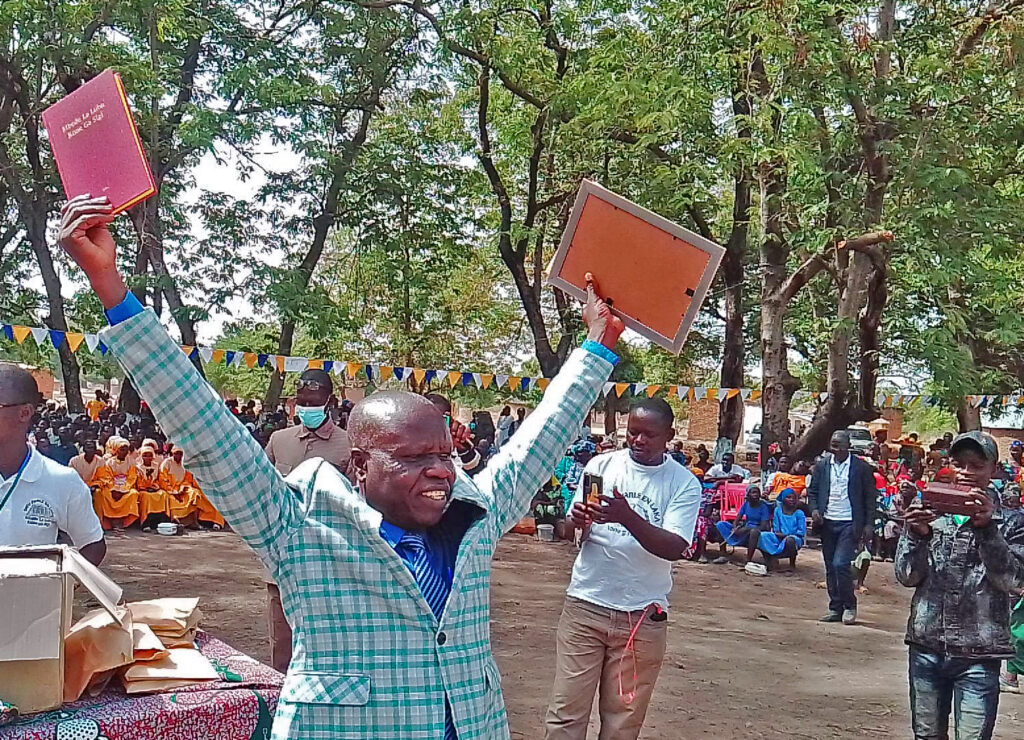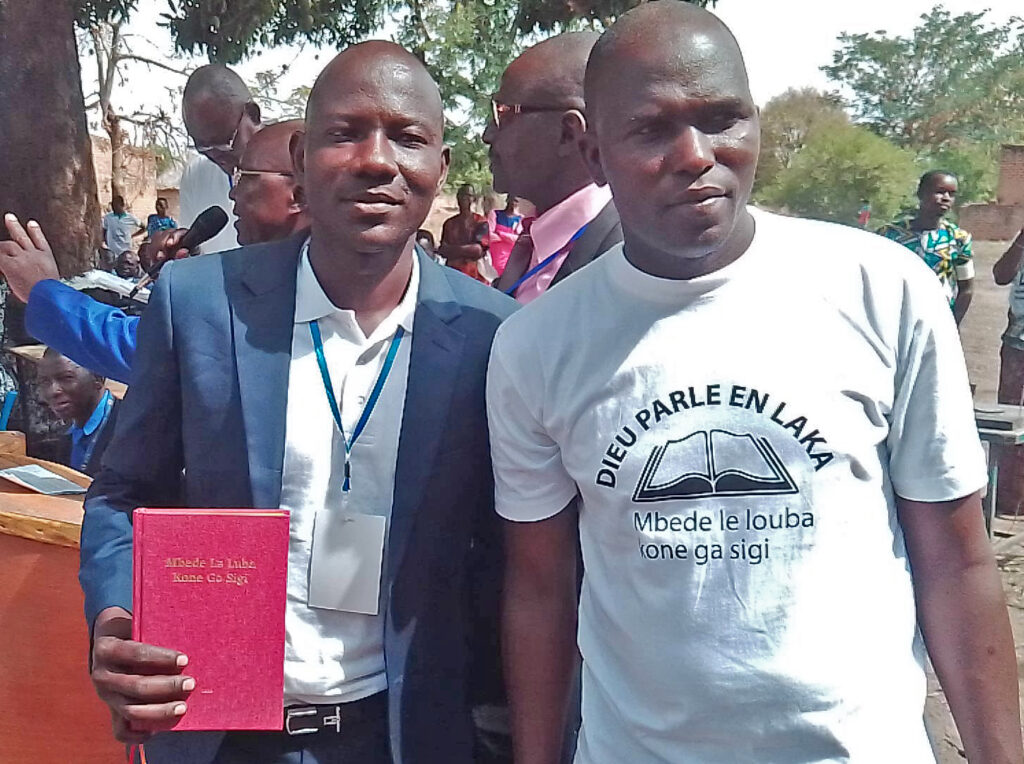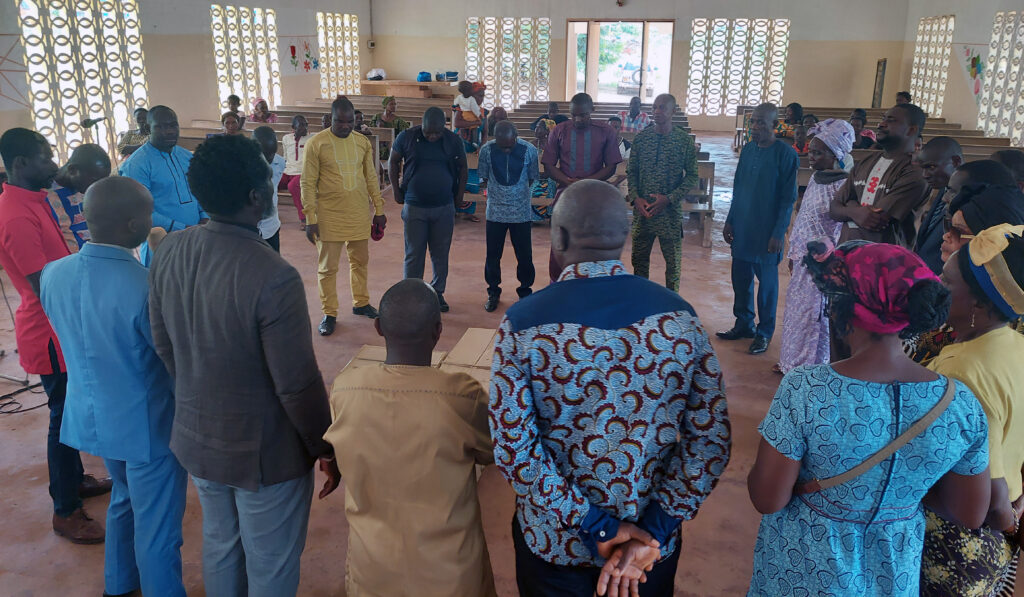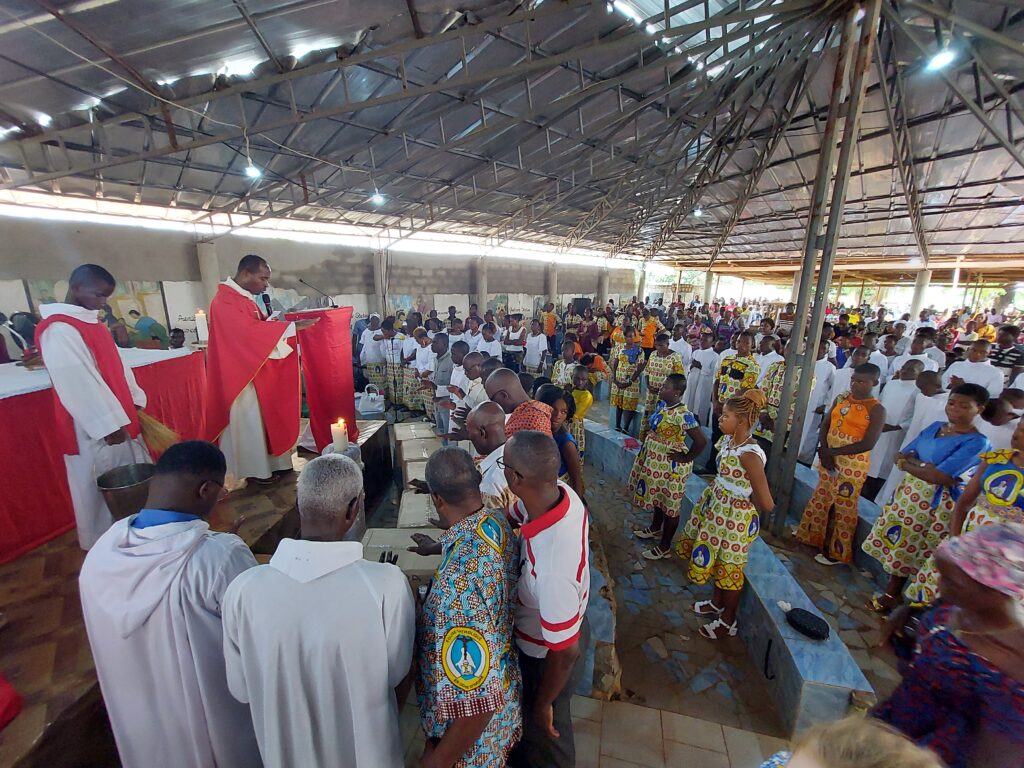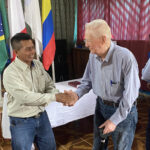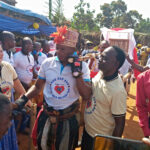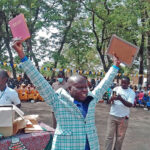Yezu or Yesu?
In the mountains of Budadiri, Uganda, in two rooms where mattresses cover the walls to diminish unwanted echoes, important work is occurring—the recording of an Oral Bible Translation project into the language of Ludadiri.
In Uganda the people have access to the Lumasaaba Bible, but the 650,000 Ludadiri speakers can’t understand it well. So they asked for a translation in their language of Ludadiri.
The Bible Society of Uganda is partnering with Faith Comes by Hearing (FCBH) and JAARS to come alongside the Ludadiri and ensure they have audio Scripture in their oral language. Thanks to you, JAARS has supplied the equipment—laptops, headsets, speakers, and Render (Oral Bible Translation software)—to enable this eternal work which began with a three-week training course.
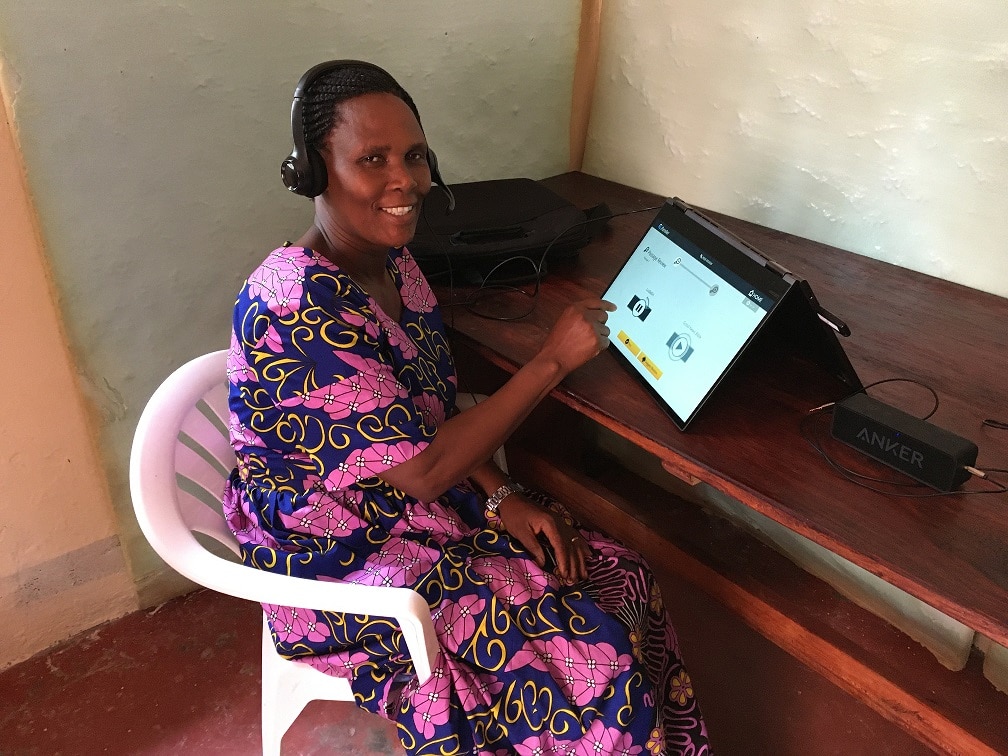
According to one of the trainers, “The size of the laptops and the touch screen capability allowed the participants to easily use Render.” Another translator compared how the Render software and touchscreen work together to a husband/wife relationship: “Render with the touch screen has made it so that when you touch it, it simplifies for any person to use it. The husband [the touch screen] is doing a good work.”
The four translators involved in the project are from both the Anglican and Catholic denominations. FCBH recommended one person from each denomination make up the two translation teams to help foster discussion early in the drafting process.
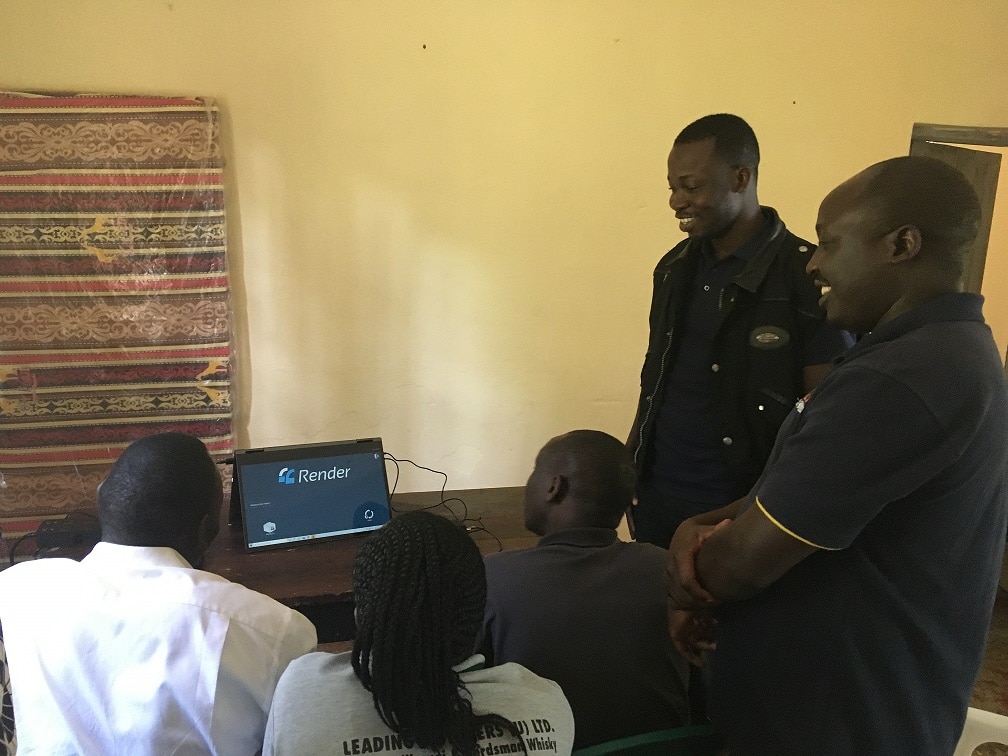
Mixing the teams incited good discussion during their three-week training. For example, in the Catholic churches they call Jesus, “Yezu,” and in the Anglican they call him, “Yesu.” The Oral Bible Trainer, Dodji, led a discussion to guide the translators and advisors in deciding which names to choose, reminding them that the names will need to be used consistently throughout their entire translation.
The Catholic advisor suggested that the Catholics would understand the Anglican “Yesu,” and a few of the Anglican participants suggested that they should use the Catholic way to say Mary. Even after deciding on this mix of names, the translators encountered some difficulties when they began recording the Scripture.
But team members kept each other accountable, saying things like, “I heard Yezu!” After retelling the passage a few times, the translators incorporated the names with ease. One of the trainers said about this mingling of denominations: “It was beautiful to see the body of Christ working in unity in something as simple (and yet profound!) as how to say Jesus in their translation.”
During the community check with villagers, the team observed a Catholic man starting to say “Yesu” in his responses to questions about the passage. This confirmed the team’s decision.
Other villagers were impacted by hearing Scripture in their language for the first time during the community check. Boniface said, “I am grateful about [the Ludadiri Scripture]. Because once it has been translated into our own language, it becomes very easy for us to understand. Even the children can understand it. Once we do, we shall have Christianity in our communities because it has been translated into our local languages [which] we understand best.”
Elizabeth thanked God for giving her courage to come listen to his Word at the community check. She is excited about the Bible the translators are recording: “I am very, very happy because we had no one to help us change the Bible [into] Ludadiri. And I am happy and excited because we’ve been using Luganda* [and] English; now we are going to get our own Bible in our own language.”
Please consider giving to our Technology Solutions so that more people like Elizabeth and Boniface can hear God’s Word in their own language!
*One of the main languages in Uganda



























































